10 forgotten websites that once ruled the Internet
Once upon a time, these lines of HTML code were the kings of the web (and our free time)
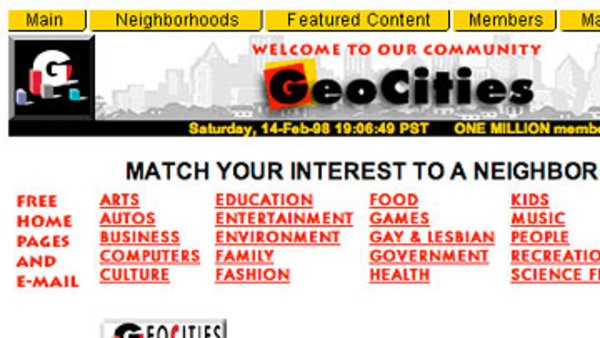

Introduction
Thank goodness for the Internet, right? It allows you to communicate with your friends and family no matter where they are, it lets you shoot 14-year-olds in the face on Call of Duty and, of course, it allows you to visit T3.com daily for an award winning fix of top tech, science and entertainment content. Simply put, the Internet is shinier, faster and more professional than ever.
The Internet, however, wasn't always like this - its fundamental structure has radically changed. Now sites like Google, Facebook, YouTube, Wikipedia and Twitter rule the Internet, sucking in billions of visits every single day. If you rewind the clock 15 years or so, however, then these sites were nobodies in the Internet realm, and were ruled over by quite a different bunch of website royalty.
Here is T3's list of the biggest and most popular websites that once ruled the Internet.
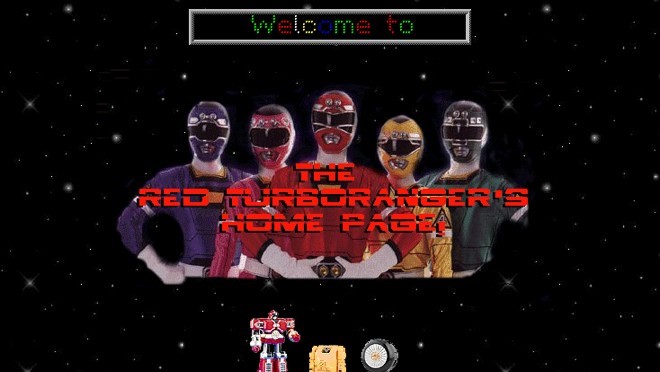
Geocities
Back in the day, Geocities was huge. At one point in time it was the third most popular site on the web with a truly global community. First launched in 1994, the online web-page creator didn't make a massive impact, but when it was acquired by Yahoo in 1999 the whole shebang exploded. The original idea was for users to build their websites and assign them to real world cities that shared the same theme or industry - for instance, film and entertainment sites would be centered around Hollywood. Yahoo soon dropped the idea in favour of bespoke URLS, and the rest, as they say, is history.
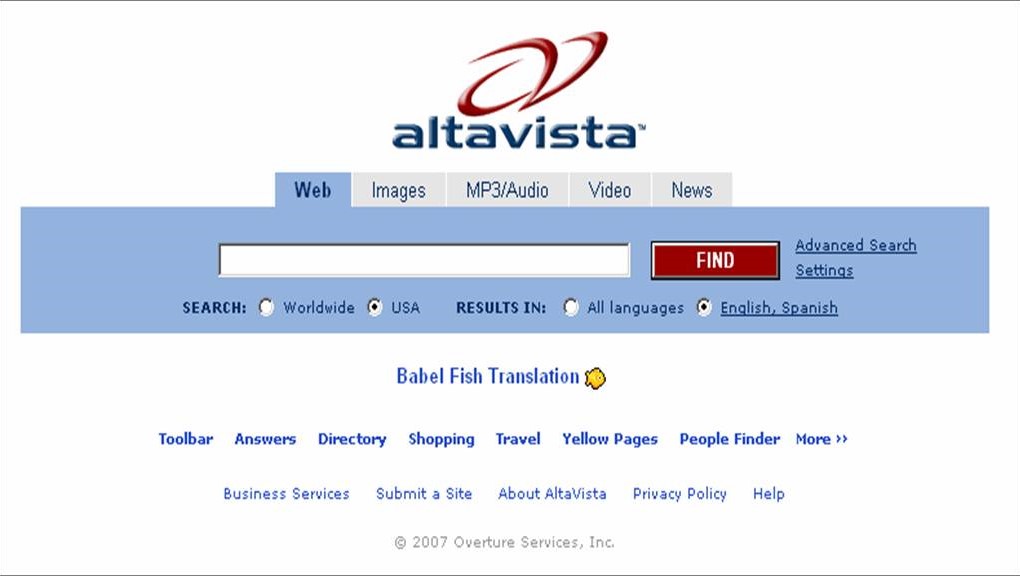
AltaVista
Remember when search engines were all the rage? Before Google bought everything and subliminally replaced the word 'search' with the word 'Google' in our minds? Back in those dark days, the web was littered with a feudal system of search engines vying for your fleeting need for trivial information or the location of your nearest Chinese takeaway. Alongside the likes of Lycos and Ask Jeeves there was AltaVista - and when it first launched it was one of the best too, having a superfast scooter (a multi-threaded crawler) and a vast back-end search. Still, that didn't stop it being lost to inevitable rise of the big G.

MySpace
Now, like a number of sites on this list, MySpace is still very much alive and no doubt has a thriving little community of its own, but it's nothing compared to its heydey around 2005. Back then, everyone was on MySpace - complete with a background that made your eyes bleed (and it made it impossible to read anything on your timeline) and a song you hated that would automatically play every time you refreshed the page. Other than good ol' MSN Messenger, MySpace was one of the first truly popular social media crazes (it also made remembering the names of people you met out on a drunken night at uni a lot easier, too).
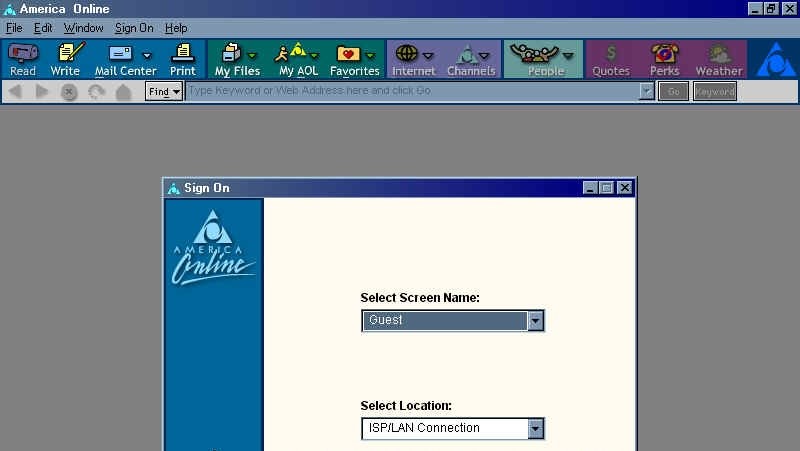
AOL
American Online started life as an online service for the Atari 2600 in the early '90s before AOL evolved into a many faced beast that covered everything from game servers to education services in the US and beyond. For many of us, AOL turned up in the dual form of a search engine (search engines were so in back in the late '90s) and an ISP. It seemed every home had one of those free AOL discs in a cardboard sleeve. These days, AOL has evolved into a multimedia giant which makes its money off investing in online sites like Engadget and The Huffington Post.
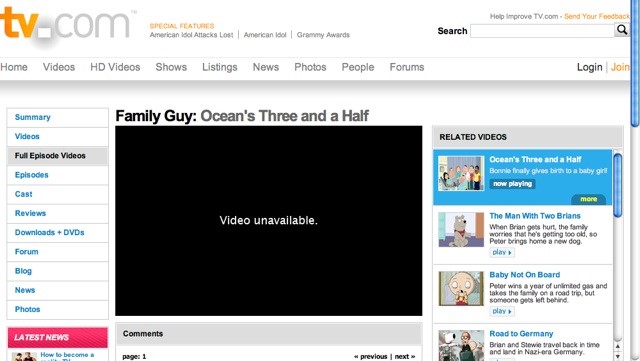
TV.com
Back in the day, before TV streaming (legal and otherwise) had taken off, people were still obsessing over their favourite TV shows and needed somewhere to go and share that disturbing love for Lost et al. The answer was the SEO goldmine that was TV.com and it become one of those news sites you ended up checking everyday because you just needed to talk to someone about that episode of 24 you just watched. Interestingly, the site was (and still is) owned by CBS, the huge American broadcasting network and now enables you to follow your favourite TV shows and share your love with a still faithful community.
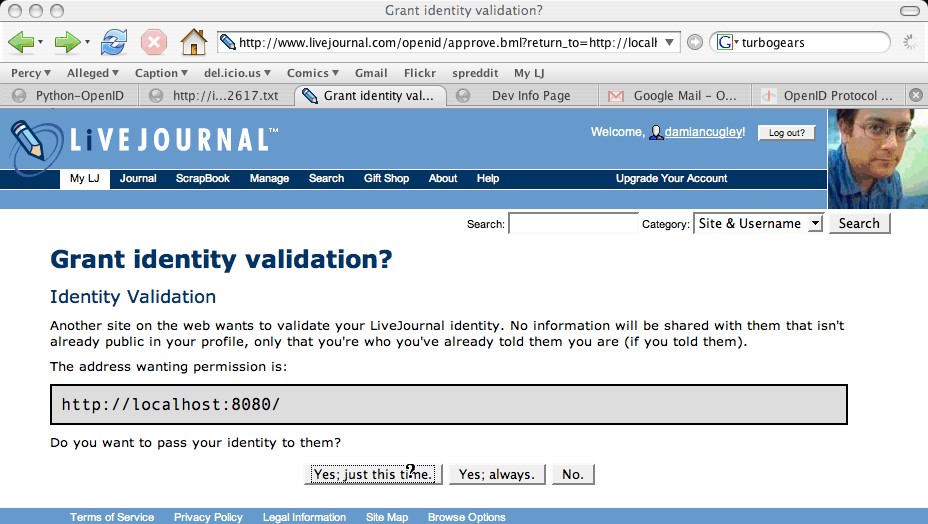
LiveJournal
Back in 1999, LiveJournal launched well ahead of its time. Combining the basic principles of a social media network and a blogging platform, LiveJournal was all about users sharing thoughts, poems, songs and stories on a global scale. It was one of the first properly popular social media platforms to implement the idea of a friends list, giving users multiple different ways to connect and share their content. It eventually introduced a premium paid version as well that added in extra features, but the free version was the one we all loved. Long before Blogger and WordPress, LiveJournal was king.
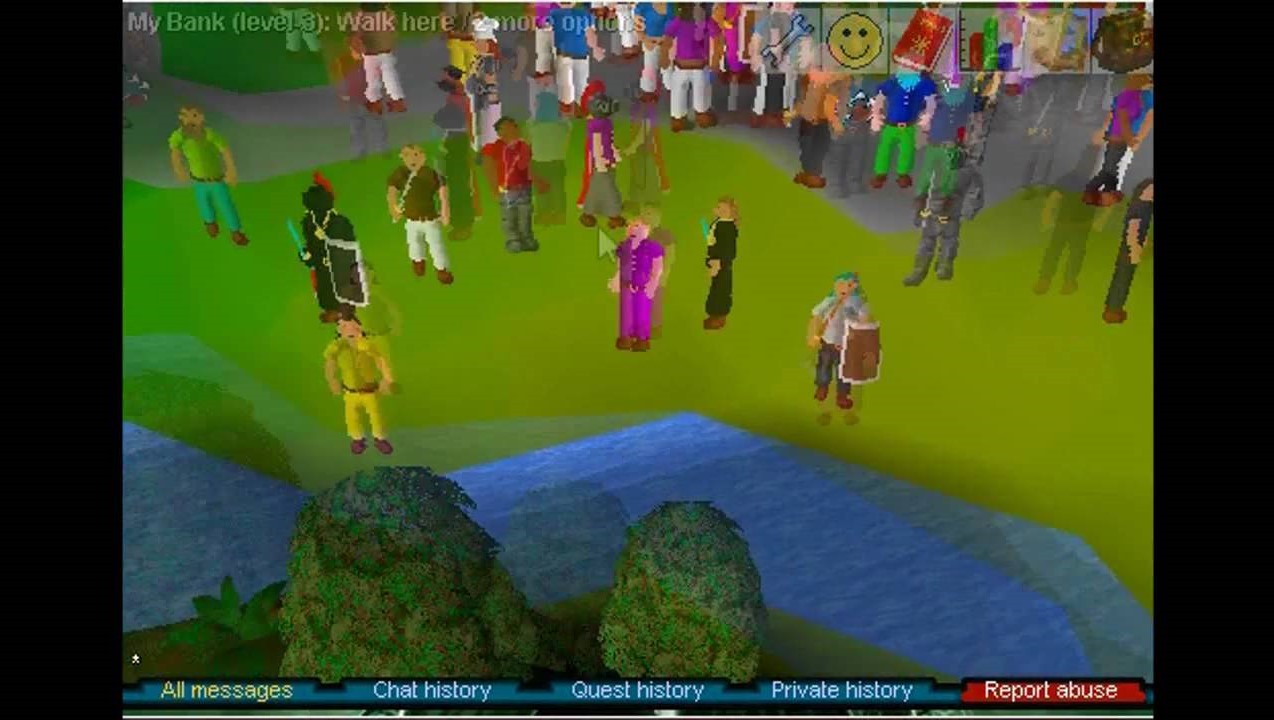
RuneScape
Ahh RuneScape, the browser-based RPG that stole many a heart and many a lifetime since its launch in 2001. Considering it holds the Guinness World Record for largest free MMORPG you'll have some idea just how big and popular RuneScape used to be. One of the first browser-based games to utilise both Java and forms of 3D rendering, it presented a huge multiplayer fantasy world to explore and easily served as the progenitor for World of Warcraft which went live three years later. The fact it didn't have much a storyline didn't hurt it either, the idea of player driven stories making it one of the first great online time sinks.
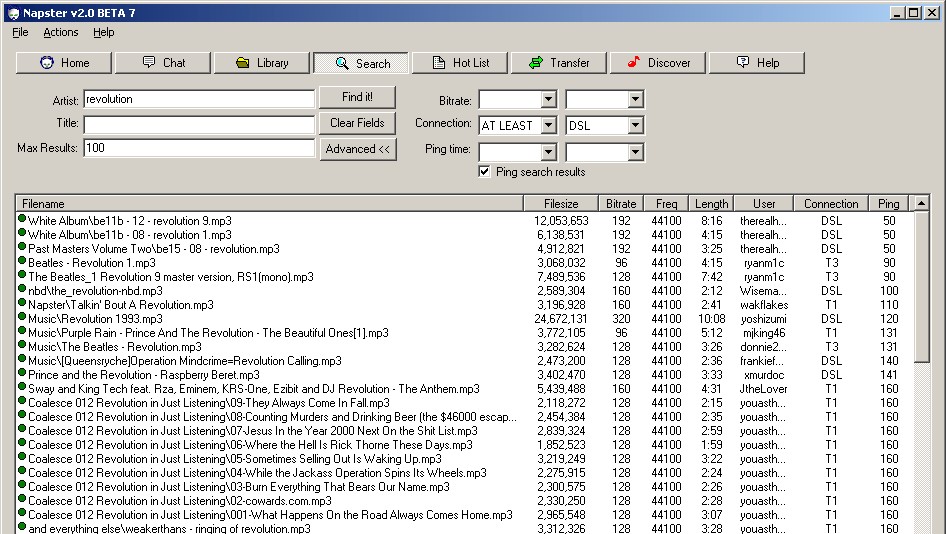
Napster
Oh, the rise of the MP3. What a heady time that was, the racks of CDs on the shelves in HMV and Virgin Stores (remember those?) suddenly seemingly instantly antiquated. For those of you who weren't getting their musical fix illegally with all those naughty P2P websites (*cough* Kazaa *cough*), there was the first proper MP3 online service, Napster. Perhaps slightly more famous for being the website that Metallica tried to sue out of existence (because it actually started out as one of those naughty P2P sites) before being acquired by Roxio and being rebranded as an online music store to rival iTunes.
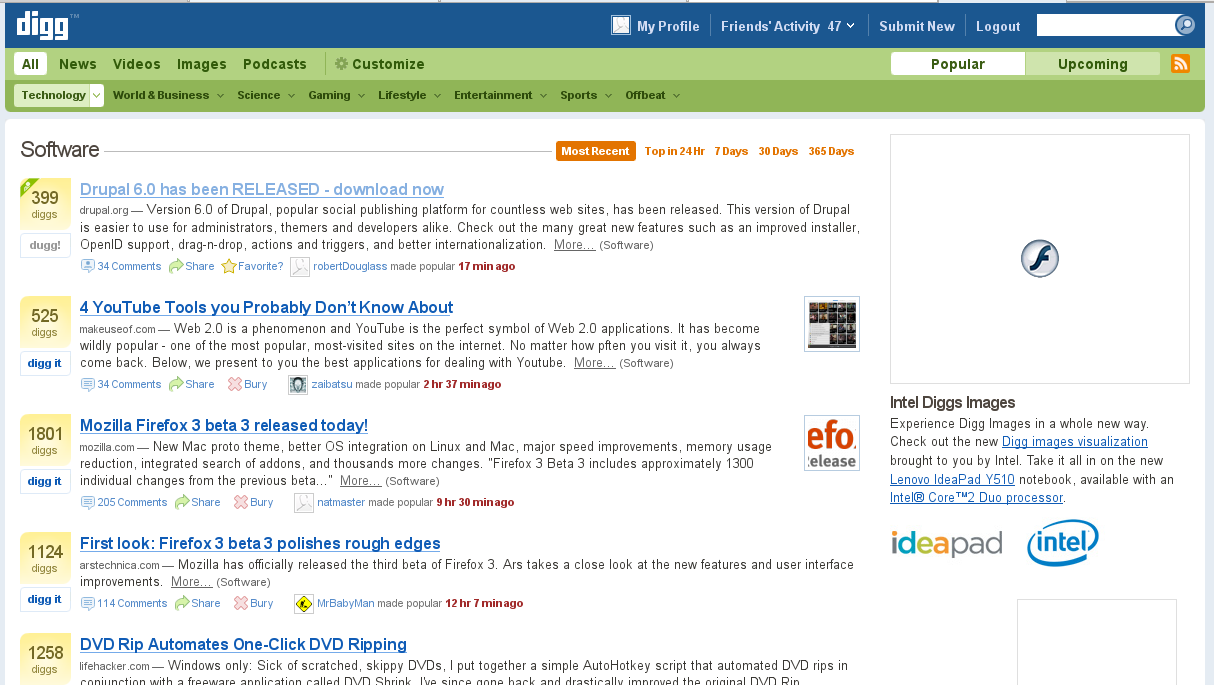
Digg
Back before Reddit was a thing and just about every conceivable subject had a /r/ thread, keyboard addicts had a very different way of chasing down all the most interesting (and utterly pointless) bits of info from around the web: Digg. Originally launched in 2004, the idea was to 'dig' something you liked (think up votes) and buried things you didn't (think, you guessed it, down votes), providing a forum where sharing the most popular viral videos, images and content was the ever-lasting dish of the day. It still exists today, but a series of buyouts, departures and redesigns have left it a shadow of its former self.
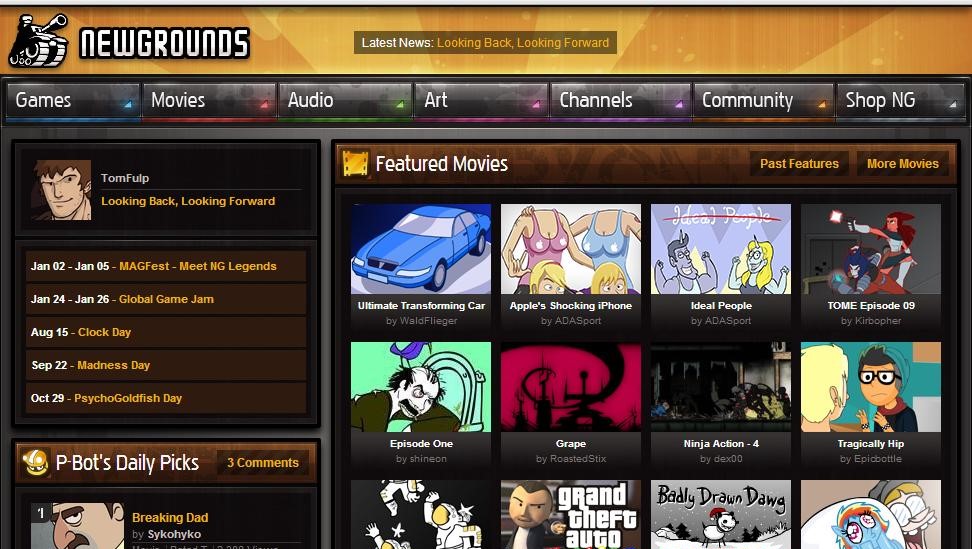
Newgrounds
Once upon a time, when Flash was all the rage and the only real way to have fun while you should be doing work at your desk or focusing on your ICT coursework was a certain mecca for all things weird and wacky: Newgrounds. Starting out as a fanzine in the early '90s, Newgrounds grew into a site where comedians and artists produced in-house content using everything from Flash to Microsoft Excel to create some of the most bizarre videos and games you'll have ever played at lunchtime/3am in the morning. That is if you get past all the porn and strip poker games, that is.
Get all the latest news, reviews, deals and buying guides on gorgeous tech, home and active products from the T3 experts
Dom Reseigh-Lincoln has been writing for T3 for over half a decade now, covering everything from mobile phones and laptops right through to video games and gaming peripherals. Purveyor of an excellent beard, as well as some perpetually cheeky offspring, Dom likes to wind down in his spare time by listening to heavy metal.